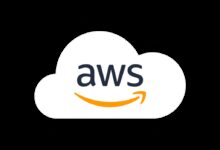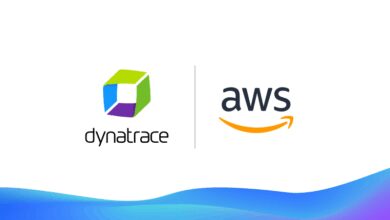AWS Certifications: 7 Ultimate Power-Packed Paths to Skyrocket Your Career
Kickstarting your journey in cloud computing? AWS certifications are your golden ticket to unlocking high-demand tech roles, boosting credibility, and standing out in a competitive job market.
What Are AWS Certifications and Why They Matter

AWS certifications are industry-recognized credentials offered by Amazon Web Services (AWS), the world’s leading cloud platform. These certifications validate your technical expertise in designing, deploying, and operating cloud-based applications and infrastructure using AWS services.
With over 80% of Fortune 100 companies relying on AWS, having an AWS certification isn’t just a resume booster—it’s a career accelerator. Whether you’re an aspiring cloud engineer, a seasoned developer, or an IT manager, these credentials demonstrate your commitment to mastering the tools shaping the future of technology.
Defining AWS Certifications
AWS certifications are structured, role-based credentials that assess your knowledge and skills across various cloud domains. Unlike generic IT certifications, AWS focuses specifically on real-world application of its services, ensuring that certified professionals can solve practical problems in production environments.
The certification process involves passing one or more proctored exams, each tailored to a specific job role such as architect, developer, or operations specialist. These exams are developed by AWS subject matter experts and are regularly updated to reflect the latest changes in the platform.
- Role-based design ensures relevance to actual job functions
- Exams are performance-based, testing applied knowledge
- Certifications require renewal every three years to maintain validity
Why AWS Dominates the Cloud Market
As of 2024, AWS holds a 32% share of the global cloud infrastructure market—larger than its next two competitors combined. This dominance means that AWS skills are in constant demand across industries ranging from finance to healthcare to entertainment.
Companies choose AWS for its breadth of services, global infrastructure, security maturity, and innovation pace. By earning an AWS certification, you’re aligning yourself with the platform that powers Netflix, Airbnb, and NASA’s Jet Propulsion Laboratory.
“AWS isn’t just a cloud provider; it’s the foundation of modern digital transformation.” — Gartner, 2023 Cloud Report
Types of AWS Certifications: A Complete Breakdown
AWS offers a tiered, role-based certification path designed to guide professionals from foundational knowledge to expert-level specialization. Understanding this structure is key to planning your learning journey effectively.
The certification ladder consists of six core certifications divided into four levels: Foundational, Associate, Professional, and Specialty. Each level builds upon the previous one, ensuring a logical progression of skills.
Foundational Level: AWS Certified Cloud Practitioner
This entry-level certification is ideal for individuals who are new to cloud computing or work in non-technical roles such as sales, procurement, or management. It provides a broad understanding of AWS Cloud concepts, services, security, and pricing models.
No prior technical experience is required, though familiarity with basic IT concepts is helpful. The exam (CLF-C02) consists of 65 multiple-choice and multiple-response questions, with a passing score of around 700 out of 1000.
- Perfect for non-technical stakeholders and career switchers
- Covers core AWS services like EC2, S3, RDS, and Lambda
- Serves as a prerequisite for some advanced training paths
For more information, visit the official AWS Cloud Practitioner page.
Associate Level: Building Core Technical Skills
The Associate tier is where most technical professionals begin their AWS journey. There are three certifications at this level:
- AWS Certified Solutions Architect – Associate: Focuses on designing distributed systems and applications on AWS.
- AWS Certified Developer – Associate: Geared toward developers building and deploying cloud applications using AWS services.
- AWS Certified SysOps Administrator – Associate: Targets system operators and DevOps engineers responsible for deployment, management, and operations on AWS.
Each exam requires hands-on experience—typically six months to a year—and a solid grasp of core AWS services. These certifications are widely recognized by employers as proof of practical cloud competence.
Professional Level: Mastering Advanced Architectures
For experienced professionals, the Professional certifications represent a significant leap in complexity and depth. These are not entry-level credentials and require deep, hands-on experience with AWS at scale.
The two offerings are:
- AWS Certified Solutions Architect – Professional: Tests your ability to design complex, scalable, and secure applications across multiple AWS services.
- AWS Certified DevOps Engineer – Professional: Validates expertise in provisioning, operating, and managing distributed systems on AWS using CI/CD, automation, and monitoring tools.
These exams are scenario-based and often present ambiguous or incomplete requirements, forcing candidates to make real-world trade-offs. Passing them signals elite-level proficiency.
Specialty Certifications: Deep Dives into Niche Domains
Beyond the core path, AWS offers Specialty certifications for professionals seeking to demonstrate expertise in focused areas. These are ideal for individuals who want to differentiate themselves in competitive fields.
Unlike the structured progression of the core certifications, Specialty exams are standalone and can be pursued by anyone with sufficient experience, regardless of whether they’ve completed other AWS certifications.
AWS Certified Advanced Networking – Specialty
This certification is designed for network engineers and architects who design and implement complex AWS networking architectures. It covers advanced topics such as hybrid cloud connectivity, multi-region VPC design, Direct Connect, Transit Gateway, and DNS management with Route 53.
aws certifications – Aws certifications menjadi aspek penting yang dibahas di sini.
Candidates must understand not only AWS networking services but also traditional networking concepts like BGP, MPLS, and IPsec. Real-world experience with large-scale enterprise networks is highly recommended before attempting this exam.
- Validates deep expertise in AWS networking
- Highly valued in enterprises with hybrid or multi-cloud setups
- Exam includes complex scenario-based questions requiring architectural decision-making
Learn more at the AWS Advanced Networking Specialty page.
AWS Certified Security – Specialty
As cyber threats grow more sophisticated, cloud security has become a top priority. This certification validates your ability to secure AWS workloads, manage identity and access, implement encryption, and monitor for threats using AWS-native tools like IAM, KMS, GuardDuty, and Config.
It’s ideal for security analysts, compliance officers, and cloud architects responsible for building secure systems. The exam is known for its depth and requires familiarity with security best practices, compliance frameworks (like GDPR and HIPAA), and incident response procedures.
“Security is not a feature—it’s a responsibility shared between AWS and the customer.” — AWS Shared Responsibility Model
AWS Certified Machine Learning – Specialty
This credential is for data scientists and machine learning engineers who use AWS to build, train, and deploy ML models at scale. It covers services like SageMaker, Rekognition, Comprehend, and Deep Learning AMIs.
Candidates must understand the full ML lifecycle, from data preparation to model evaluation, and be able to optimize models for cost and performance. Strong programming skills in Python and familiarity with ML frameworks like TensorFlow or PyTorch are essential.
- One of the most technically challenging AWS exams
- Demonstrates rare, high-value expertise in AI/ML
- Highly sought after in tech-forward industries
Benefits of Earning AWS Certifications
Earning an AWS certification goes far beyond adding a badge to your LinkedIn profile. The tangible and intangible benefits can transform your career trajectory, increase your earning potential, and open doors to new opportunities.
From salary increases to global recognition, the ROI on AWS certifications is consistently high across regions and experience levels.
Career Advancement and Job Opportunities
AWS-certified professionals are in high demand. According to a 2023 report by IT Certification Central, AWS certifications rank #1 in employer demand for cloud skills. Companies actively seek certified individuals for roles such as Cloud Architect, DevOps Engineer, and Cloud Security Analyst.
Many job postings now list AWS certification as a preferred or even required qualification. Holding one can give you a decisive edge in competitive hiring processes, especially when paired with hands-on experience.
- Access to exclusive job boards and AWS Partner Network roles
- Increased visibility to recruiters on platforms like LinkedIn
- Eligibility for higher-level positions even without traditional degrees
Salary Increases and Financial ROI
The financial return on AWS certifications is well-documented. According to the 2024 Global Knowledge IT Skills and Salary Report, AWS-certified professionals earn an average of 25% more than their non-certified peers.
For example, the average salary for an AWS Certified Solutions Architect – Associate in the U.S. is $135,000, while the Professional level can command over $160,000 annually. In high-cost tech hubs like San Francisco or New York, these figures can exceed $200,000.
Even the entry-level Cloud Practitioner certification can boost starting salaries for IT support roles by 10–15%, making it one of the most cost-effective career investments available.
Global Recognition and Industry Credibility
AWS certifications are recognized worldwide as the gold standard in cloud credentials. Unlike vendor-neutral certifications, AWS’s dominance gives its certifications unmatched credibility in the real world.
Whether you’re working in Singapore, Germany, or Brazil, an AWS certification signals that you speak the language of the cloud. This global portability makes it easier to work remotely, join multinational teams, or relocate for better opportunities.
“In the cloud world, AWS certification is the closest thing we have to a universal passport.” — TechRepublic, 2023
How to Prepare for AWS Certification Exams
Success on AWS certification exams doesn’t come from memorization—it comes from understanding how to apply AWS services to solve real problems. A strategic preparation plan is essential, especially for Associate and Professional levels.
The most effective approach combines structured learning, hands-on practice, and exam simulation.
Recommended Study Resources
AWS provides a wealth of official resources to help you prepare. Start with the exam guide, which outlines the domains and weightings for each test. Then, explore the free digital training on AWS Skill Builder, which includes video courses, labs, and practice exams.
Popular third-party platforms like A Cloud Guru, Whizlabs, and Udemy also offer comprehensive courses taught by AWS-certified instructors. Look for courses that include:
- Hands-on labs using real AWS accounts
- Practice exams with detailed explanations
- Study plans tailored to your schedule
Visit AWS Skill Builder for official training paths.
aws certifications – Aws certifications menjadi aspek penting yang dibahas di sini.
Hands-On Practice with AWS Free Tier
Nothing beats real experience. AWS offers a Free Tier that allows you to use many services at no cost for 12 months. Use this to build projects like a serverless website, a CI/CD pipeline, or a secure VPC with subnets and firewalls.
Create a personal AWS account (with billing alerts enabled to avoid surprise charges) and experiment freely. Try to replicate the scenarios described in the exam guides. For example, if you’re studying for the Solutions Architect exam, design a multi-tier web application using EC2, RDS, and S3.
- Build a static website using S3 and CloudFront
- Set up an EC2 instance with Auto Scaling and ELB
- Configure IAM roles and policies for least privilege access
Exam Day Tips and Strategies
On exam day, stay calm and methodical. The exams are timed (usually 130 minutes), and questions are often worded to test your ability to eliminate wrong answers.
Use the process of elimination and flag difficult questions for review. Remember that AWS emphasizes best practices—when in doubt, choose the most secure, cost-effective, and scalable option.
- Read each question carefully—many have “not” or “except” in them
- Use the whiteboard tool to sketch architectures if allowed
- Manage your time: spend no more than 2 minutes per question initially
Common Mistakes to Avoid When Pursuing AWS Certifications
Even motivated candidates can stumble due to common pitfalls. Avoiding these mistakes can save you time, money, and frustration.
From over-relying on memorization to underestimating the depth of knowledge required, awareness is the first step to prevention.
Overlooking Hands-On Experience
One of the biggest mistakes is studying only through videos and books without touching the AWS console. AWS exams are practical—they test what you can *do*, not just what you know.
Candidates who skip hands-on labs often struggle with scenario-based questions. For example, you might be asked to choose the right storage class for a backup strategy. Without having used S3 Glacier or Intelligent-Tiering, it’s hard to make an informed decision.
“I passed the Developer Associate exam on my second try—only after I spent 40 hours in the console building real apps.” — Reddit user, r/AWSCertifications
Underestimating the Depth of Knowledge
Some candidates assume that because they’ve used AWS casually, they’re ready for the exam. But AWS certifications go deep. For example, the Solutions Architect exam expects you to understand not just *how* to create a VPC, but also how to optimize it for high availability, security, and cost.
Study all domains listed in the exam guide, even those you think are less important. Networking, security, and billing concepts appear across all exams, regardless of role.
Ignoring the AWS Shared Responsibility Model
This foundational concept appears on nearly every AWS certification exam. It defines which security responsibilities belong to AWS (like physical infrastructure) and which belong to the customer (like data encryption and access control).
Misunderstanding this model can lead to incorrect answers, especially in security and architecture questions. Make sure you can clearly articulate where the responsibility boundary lies for compute, storage, and database services.
Renewal and Continuing Education for AWS Certifications
AWS certifications are valid for three years. After that, you must renew them to maintain your credential. This policy ensures that certified professionals stay current with the rapidly evolving cloud landscape.
Renewal isn’t just a formality—it’s a commitment to lifelong learning in a field where change is the only constant.
How to Renew Your AWS Certification
You can renew most AWS certifications by either retaking the current version of the exam or earning a higher-level certification in the same track. For example, passing the Solutions Architect – Professional exam automatically renews your Associate credential.
AWS also offers a continuing education program where you can earn points by completing training, attending events, or publishing content. Once you accumulate enough points, you can renew without taking an exam.
- Renewal window opens 90 days before expiration
- Cost to renew is $75 (half the original exam fee)
- Continuing education is ideal for those who stay actively engaged with AWS
The Importance of Staying Updated
AWS releases hundreds of new features and services each year. What was best practice two years ago might now be deprecated. Renewal ensures you’re not relying on outdated knowledge.
For example, AWS Lambda now supports container images, and Amazon RDS has added zero-downtime patching. Staying certified means you’re aware of these innovations and can apply them effectively.
Pathways to Higher-Level Certifications
Once you’ve earned an Associate certification, don’t stop there. Use it as a springboard to Professional or Specialty credentials. Each step increases your value in the job market.
Consider combining certifications—for example, pairing a Solutions Architect certification with a Security Specialty to become a cloud security architect. This hybrid expertise is extremely rare and highly valuable.
aws certifications – Aws certifications menjadi aspek penting yang dibahas di sini.
Future of AWS Certifications and Cloud Careers
The demand for cloud skills shows no signs of slowing. As more organizations migrate to the cloud and adopt AI, serverless, and edge computing, the need for certified AWS professionals will only grow.
Staying ahead of these trends ensures long-term career resilience and opens doors to emerging roles.
Emerging Trends in Cloud Technology
Several trends are shaping the future of AWS and its certifications:
- AI and Machine Learning Integration: AWS is embedding AI into core services (e.g., Amazon Q, Bedrock), requiring professionals to understand both cloud and AI fundamentals.
- Serverless and Event-Driven Architectures: Services like Lambda and EventBridge are becoming standard, reducing the need for server management.
- Edge Computing with AWS Wavelength and Outposts: Extending cloud capabilities to the network edge for low-latency applications.
Future certifications may include more focus on AI/ML, sustainability (carbon footprint optimization), and multi-cloud interoperability.
How AWS Certifications Adapt to Change
AWS regularly updates its certification exams to reflect new services and best practices. For example, the 2023 update to the Solutions Architect exam added more questions on sustainability and cost optimization.
This agility ensures that certifications remain relevant and trusted by employers. As new roles like Cloud AI Engineer or Sustainable Cloud Architect emerge, AWS will likely introduce new credentials to validate those skills.
Long-Term Career Planning with AWS
Think of AWS certifications as part of a lifelong learning journey. Start with Cloud Practitioner, move to Associate, then specialize. Over time, you can become a recognized expert in your niche.
Combine certifications with soft skills like communication and leadership to move into cloud consulting, architecture, or management roles. The cloud isn’t just a technology—it’s a career platform.
What is the easiest AWS certification to start with?
The AWS Certified Cloud Practitioner is the easiest and most recommended starting point. It requires no technical background and covers fundamental cloud concepts, making it ideal for beginners or non-technical professionals.
How much does an AWS certification cost?
Exam fees range from $100 for the Cloud Practitioner to $300 for Associate and Professional levels. Specialty exams cost $300. AWS often offers free exam vouchers through training events or promotions.
Do AWS certifications expire?
Yes, all AWS certifications are valid for three years. You must renew them by passing a recertification exam, earning a higher-level certification, or completing continuing education activities.
Can I take AWS exams online?
Yes, AWS certification exams can be taken online via Pearson VUE’s remote proctoring service. You’ll need a quiet environment, a webcam, and a stable internet connection.
Are AWS certifications worth it in 2024?
Absolutely. With cloud adoption accelerating globally, AWS certifications remain one of the most valuable credentials in tech. They lead to higher salaries, better job opportunities, and industry recognition.
Investing in AWS certifications is one of the smartest career moves you can make in the digital age. Whether you’re just starting out or looking to level up, these credentials provide a clear, structured path to success in the cloud era. With the right preparation and mindset, you can earn a certification that not only validates your skills but transforms your professional future.
aws certifications – Aws certifications menjadi aspek penting yang dibahas di sini.
Further Reading:









